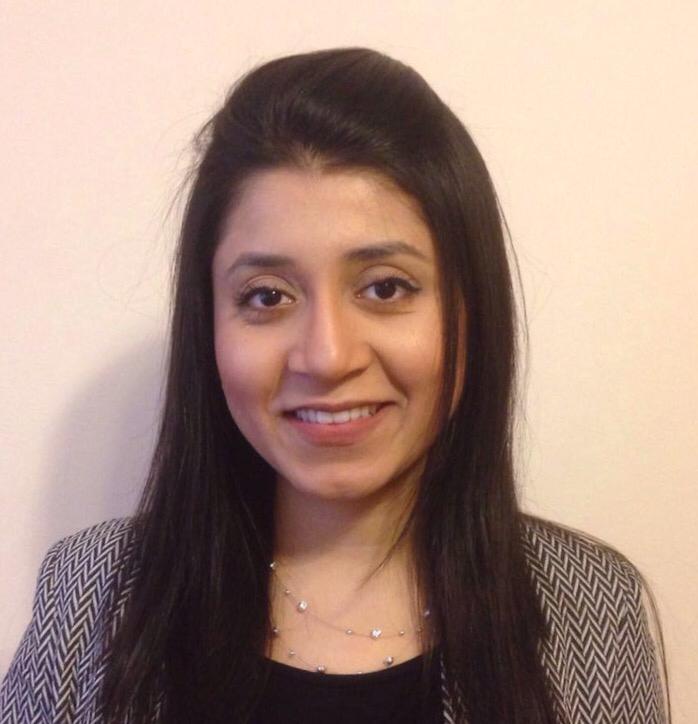
Cochrane is made up of 11,000 members and over 67,000 supporters come from more than 130 countries, worldwide. Our volunteers and contributors are researchers, health professionals, patients, carers, people passionate about improving health outcomes for everyone, everywhere.
Cochrane is an incredible community of people who all play their part in improving health and healthcare globally. We believe that by putting trusted evidence at the heart of health decisions we can achieve a world of improved health for all.
Many of our contributors are young people working with Cochrane as researchers, citizen scientists, medical students, and volunteer language translators and we want to recognize the work of this generation of contributors as part of this series called, Cochrane’s “30 under 30."
In this series, we will interview 30 young people, 30 years old or younger who are contributing to Cochrane activities in a range of ways, all promoting evidence-informed health decision making across the world.
We will be hearing from them in a series of interviewees published over the coming months.
We're keen to hear from you. Would you like to take part in this series? Do you know someone you'd like to see interviewed? Contact lparsonson@cochrane.org. Or if you want to know more about Cochrane’s work contact membership@cochrane.org where our community support team will be happy to answer your questions.

Name: Aqsa Iqbal
Age: 28
Occupation: MD and researcher
Program: Research Scholar at the University of Illinois at Chicago
How did you first hear about Cochrane?
I have always been interested in learning about systematic reviews so that I can help improving evidence-based medicine. A few years ago, in order to learn systematic reviews, I started searching the best sources for systematic reviews. I came across the Cochrane Handbook for Systematic Reviews of Interventions which is an excellent resource for systematic reviews.
Cochrane is helping me in my systematic review studies by proving me access to Covidence, which is an efficient tool for conducting systematic review studies. Cochrane improved my knowledge about evidence-based medicine and qualified me to conduct different studies around the globe.
How did you become involved with Cochrane? What is your background?
Being an MD, I have always been interested in practicing evidence-based medicine. Last year, I started systematic reviews with Universities in China and Iran. I was inspired by different programs Cochrane have started to support evidence-based medicine. I decided to get involved with different programs in Cochrane to support their mission.
What do you do in Cochrane?
I am a Cochrane citizen scientist, a peer- reviewer and a have recently signed up as a member of student for best practice.
What specifically do you enjoy about working for Cochrane and what have you learnt?
I enjoy participating in identifying reports of randomized trials and helping other researchers with their studies. Participating as a citizen scientist in Cochrane Crowd serves my desire to improve and expedite medical research. It is fulfilling to assist researchers in finding answers important questions regarding treatment.
What are your future plans?
My future plans are to keep contributing to the different field of medicine, expedite and improve evidence-based medicine and reduce sufferings of people. I would also like to get more involved with more Cochrane programs.
In your personal experience, what one thing could Cochrane do better to improve its global profile?
One thing that Cochrane could improve is to increase its visibility especially how people can contribute and learn. If more videos and free courses became available on how to conduct systematic review and meta-analysis that would be helpful.
What do you hope for Cochrane for the future?
Cochrane should increase its global involvement especially in low and middle income countries. During my medical school, I did not know about Cochrane and its incredible services. If I knew about Cochrane earlier, I would have learnt and contributed to Cochrane in a much better way.
How important is it that young people get involved in Cochrane? Why is this, do you think?
It is very important that young people should get involved with Cochrane. Involvement with Cochrane will train them to learn to produce high quality research right from the beginning of their career.
Cochrane provides excellent resources, community and guidance to learn to produce high quality research.
What would your message be to other young people who want to get involved with Cochrane’s work but not sure where to start….?
Young people should start thinking about getting involved in research at the early part of their career. Start from screening studies as Cochrane citizen scientist. Training provided by Cochrane is very informative. They should also reach out to local Cochrane centers as well as community for guidance and mentorship.


